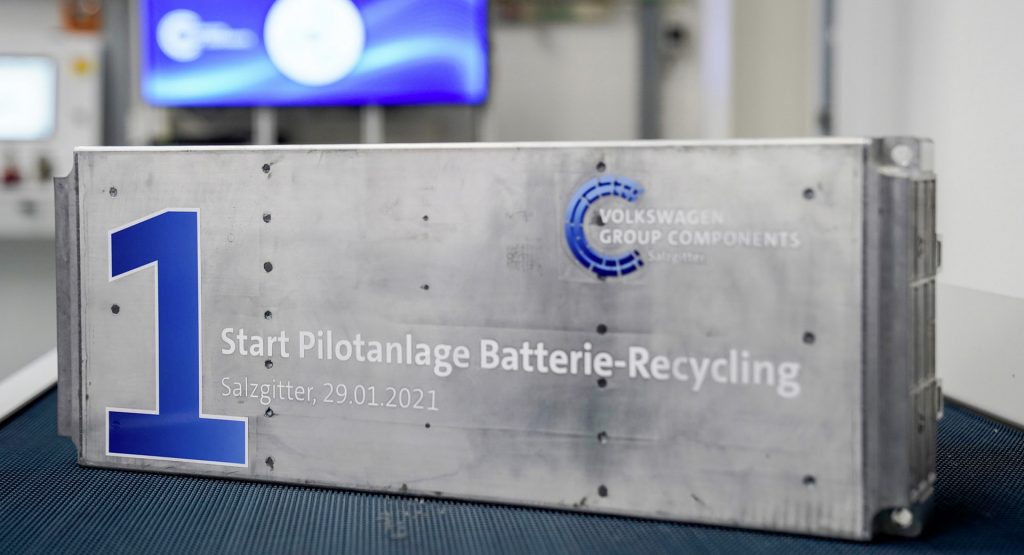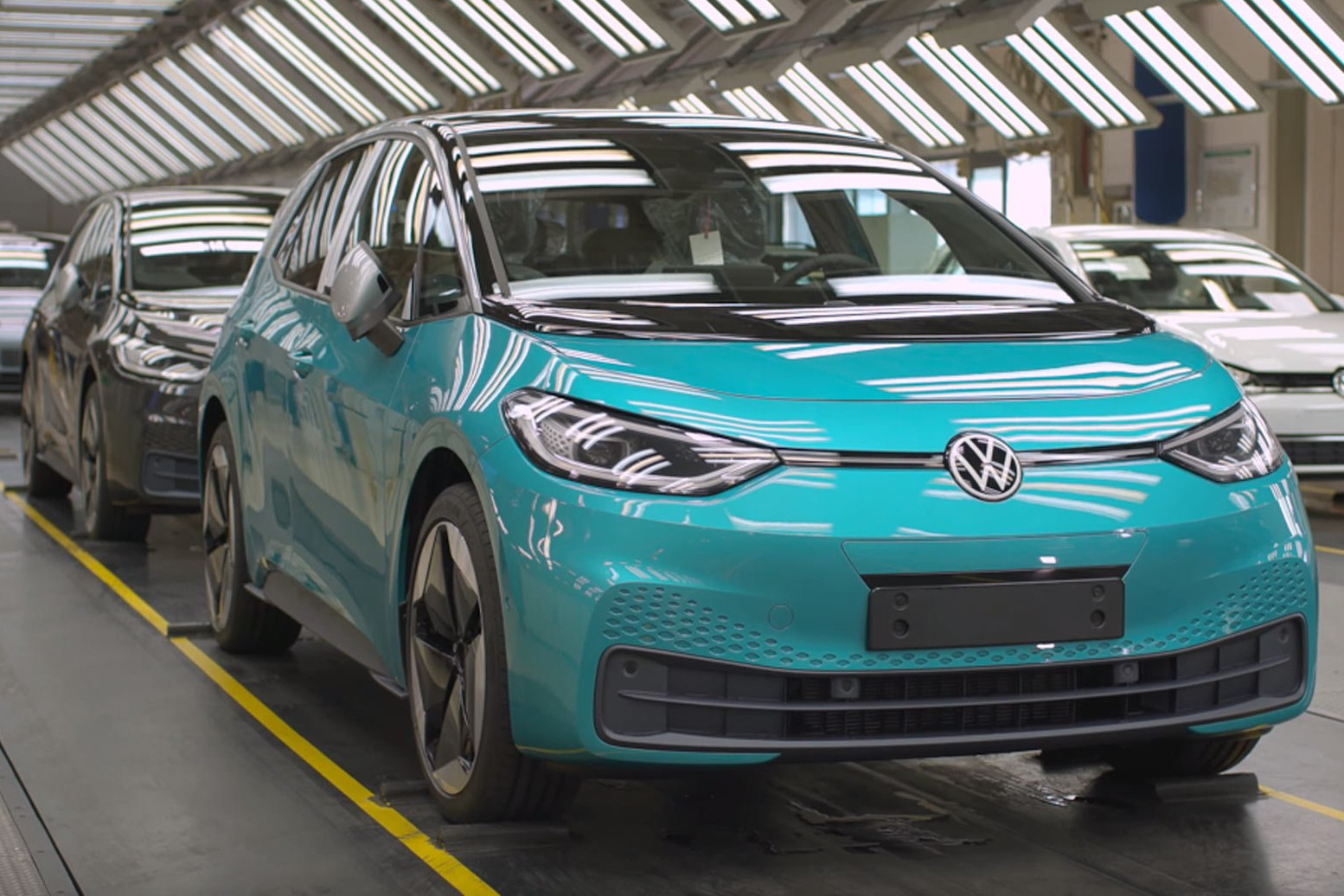The Volkswagen Group is hoping to recycle up to 90% of the materials in its batteries in the future, and has taken the first step in that mission with its first plant for recycling EV batteries in Salzgitter.
As you may know, lithium-ion batteries require a lot of materials, many of which are hard to find and require a lot of energy to mine. Although EV car manufacturers won’t always disclose the true environmental impact of their EVs, one of the advantages of centralizing (and reducing) pollution is that big recycling programs like these could become easier.
The plant will recycle batteries that can simply be used in other applications. Volkswagen has already outlined some of the plans it has for reusing batteries, like in mobile charging banks. This plant, however, will deal with the batteries after they have been used up and will thereby recover the raw materials, like lithium, nickel, manganese, and cobalt.
“Volkswagen Group Components has achieved a further step in its sustainable end-to-end responsibility for the battery as a key component of electric mobility,” said Thomas Schmall, Chairman of the Board of Management of Volkswagen Group Components. “We are implementing the sustainable recyclable materials cycle – and play a pioneering role in the industry for a future-oriented issue with great potential for climate protection and raw material supply.”
Also Read: GM Intends To Stop Selling Gasoline Vehicles By 2035, Will Be Carbon Neutral By 2040
The process used will also be energy efficient. Rather than just melting everything down in a blast furnace, the batteries are disassembled and ground down into a black powder which is then processed by hydrometallurgical processes.
“As a consequence, essential components of old battery cells can be used to produce new cathode material,” explains Mark Möller, Head of the Business Unit Technical Development & E-Mobility. “From research, we know that recycled battery raw materials are just as efficient as new ones. In future, we intend to support our battery cell production with the material we recover. Given that the demand for batteries and the corresponding raw materials will increase drastically, we can put every gram of recycled material to good use.”
Naturally, Volkswagen doesn’t expect the plant to be very busy for a few years. As EVs become more popular, though, this will be an important step in the greenification process. Volkswagen reckons that a recycled battery saves 1.3 tonnes of CO2.





